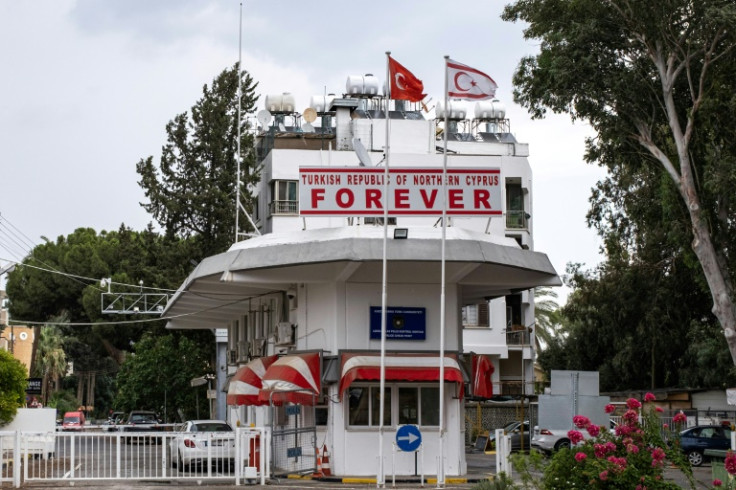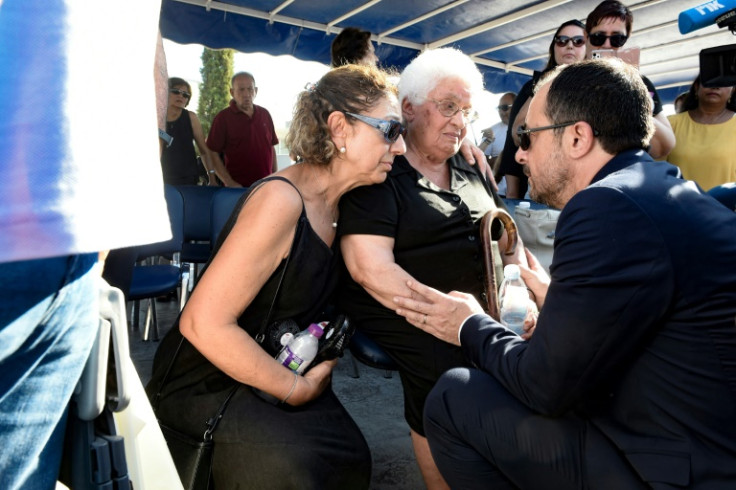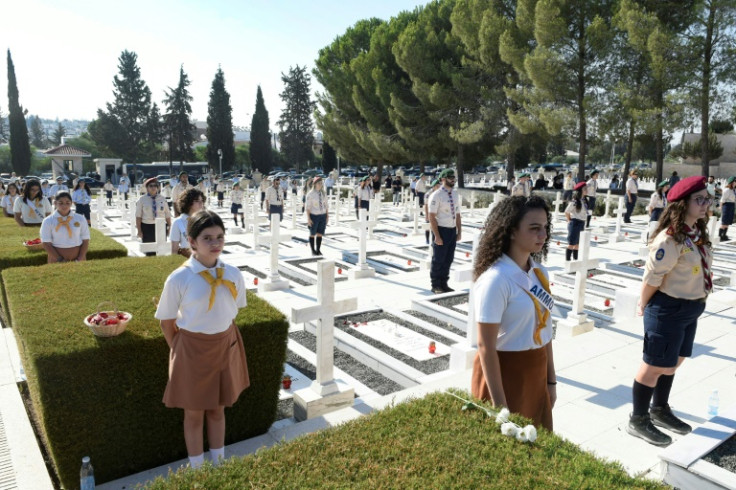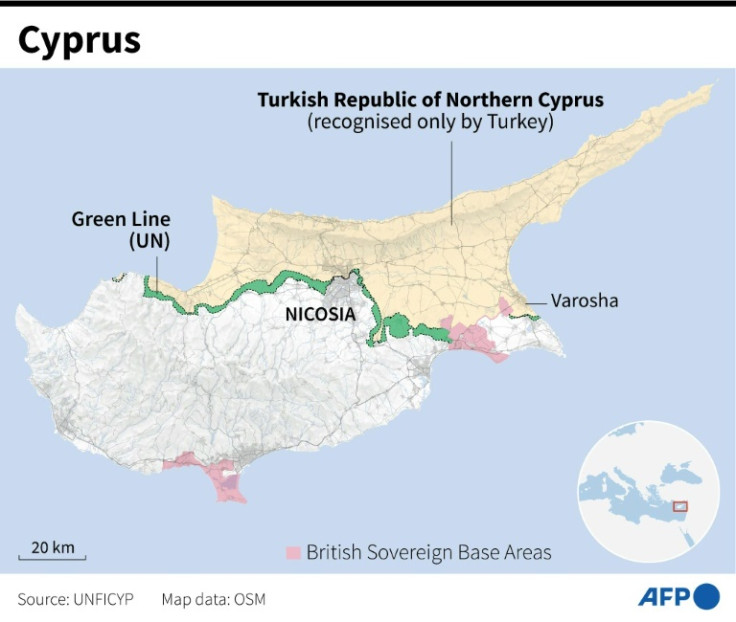Tears As Cyprus Marks 50 Years Since Turkish Invasion

Fresh tears flowed in Cyprus Saturday for loved ones killed 50 years ago when Turkish troops landed on the Mediterranean island in an invasion that has left it divided and scarred to this day.
As dawn broke in the internationally recognised south of the island, sirens wailed at 5:30 am (0230 GMT), the start time of 1974's Operation Atilla.
The invasion led to the conquering of one-third of Cyprus and displacement of around 40 percent of the population.
A UN-patrolled buffer zone now cuts across the island from northwest to southeast, with checkpoints and border controls separating the Greek Cypriot community in the south from Turkish Cypriots in the north.
Under a hot early-morning sun at a war memorial in the west of the divided capital Nicosia, a mother clad in black cried over the tomb of her son.
She ran her hand gently over a photo of the young man attached to the marble cross. Other women wiped their eyes nearby.
Greek flags waved on other, identical, graves that stretched out in rows around them as mourners placed flowers and incense.
Ceremonial gunfire sounded and President Nikos Christodoulides unveiled busts of officers killed in the fighting. He also laid a wreath.
More than 750 Greek Cypriots and almost 200 Turkish Cypriots remain missing, says the bicommunal Committee on Missing Persons in Cyprus which tries to find and return their remains to loved ones.
Before the anniversary, Greek Cypriot veterans of the fight against the invasion told AFP they were pessimistic about the prospects for peace.
Demetris Toumazis, who was taken to Turkey as a prisoner of war in 1974, said, "It's 50 years now and there's still no solution, and there's no hope".
Greek Prime Minister Kyriakos Mitsotakis was set to visit Cyprus on Saturday evening to attend the commemorations alongside Christodoulides.
In the self-proclaimed Turkish Republic of Northern Cyprus, which is recognised only by Ankara, Turkish President Recep Tayyip Erdogan arrived for anniversary events including a military parade, an AFPTV live feed showed.
The TRNC's lack of international recognition since its declaration by Turkish Cypriot leaders in 1983 means it is heavily dependent on Turkey.
On the eve of the anniversary, Turkey's parliament adopted a resolution calling for an "end to the inhumane isolation imposed on Turkish Cypriots".
Decades of UN-backed talks have failed to reunify the island. The last round of talks collapsed in 2017.
The most recent United Nations envoy, Colombian diplomat Maria Angela Holguin, wrote in an open letter this month that there was a need to "move away" from past solutions and to "think differently".
In a statement marking the anniversary, the European Union -- to which Cyprus belongs -- stressed the need for all parties to seek a peaceful resolution.
"A genuine commitment is urgently needed by all concerned, including the two Cypriot communities, as well as in particular Turkey, for a peaceful settlement on the basis of relevant UN Security Council resolutions," it said.
Irfan Siddiq, Britain's high commissioner to Cyprus, said on social media platform X that, "Too many opportunities for re-unification have been missed."
In a similar vein, UN Secretary-General Antonio Guterres, in a report this month to the Security Council, said "resolution of the Cyprus issue is long overdue".
Guterres regretted "the gradual militarisation that is under way on the island".
The invasion was triggered by a coup in Nicosia backed by the military junta in Athens and aimed at uniting the island with Greece, something bitterly opposed by the Turkish Cypriot community which made up just under a fifth of the island's population at the time.
The treaty granting it independence banned union with Greece or Turkey as well as partition and made London, Athens and Ankara guarantors of Cyprus's independence, territorial integrity and security.
Within three years, severe intercommunal violence broke out which caused Turkish Cypriots to withdraw into enclaves and first divided Nicosia in two.





© Copyright AFP 2025. All rights reserved.





















